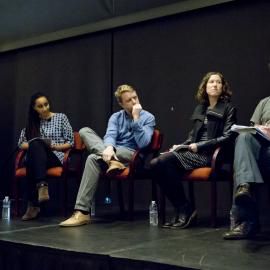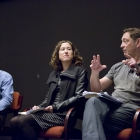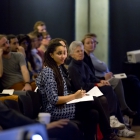
Wednesday, February 8, 2017 | 5:30pm
Experiments in Unconditional Basic Income
Experiments in Unconditional Basic Income – What do people do when they’re given cash, no strings attached?
Panelists:
- Joe Huston - Regional Director, Give Directly
- Elizabeth Rhodes - Research Director for the Basic Income Project, Y Combinator Research
- Guy Standing - Professorial Research Associate at the School of Oriental and African Studies, University of London; Founder and Co-President, Basic Income Earth Network
In 2016, the policy proposal for Universal Basic Income grew more favorable in American opinion. Among many others, Andrew Stern, Robert Reich and Martin Ford published books advocating for a guaranteed income for all. Poverty, structural unemployment, growing inequalities, automation, and precariousness are some of the concerns that basic income proponents sought to address with a policy that was described as a ‘disarmingly simple idea’: give everyone cash, no strings attached, unconditionally and individually.
What kind of basic income would work? What would people do with free cash? Would they stop working, would they work more, would they volunteer more? Under which condition (if any) can people thrive without a job? Would Basic Income cause inflation? Is it affordable? The Center for Ethics in Society is launching a Basic Income Lab to help answer some of these questions.
On this panel, Guy Standing will introduce some of the results of the Madhya Pradesh experiment in India, Joe Huston will describe the large Give Directly experiment in Kenya, and Elizabeth Rhodes will present the Y Combinator Research pilot study in Oakland.



Event Sponsor: Center for Ethics in Society at Stanford University